 Nobikage San
Nobikage San Introducing
Generative AI chatbots to improve customer support services in retail businesses
Discover the top generative AI chatbots for retail and eCommerce—tools that cut support costs, boost CX, and automate post-purchase tasks.
With an 80% deflection rate for routine queries, a 45% reduction in average handling times, and 44% faster issue resolution, generative AI chatbots have become essential for eCommerce and retail brands.
Generative technology provides the ability to deliver human and contextualized answers.
Here’s some of the most popular generative AI chatbots that you can use to improve your customer support service and reduce your costs
Top generative AI chat tools
| Platform | Core Focus | Pricing |
|---|---|---|
| Minami AI | Fully autonomous post-purchase agent (returns, exchanges, delivery) | Contact sales |
| LivePerson | Enterprise conversational AI for SMS & WhatsApp | Contact sales |
| Zowie | Shopify automation bot for DTC support | Contact sales |
| Tidio Lyro AI | Affordable multichannel chatbot for SMBs | Contact sales |
| Intercom Fin | Generative answer bot for Intercom users | From 0.99/resolution |
| Ada | Personalized CX automation with CRM data | Contact sales |
| Zendesk AI | AI-powered ticket routing and replies | From 69/agent + 1.50/resolution |
Why generative technology matters in the ecommerce experience
Generative AI transforms every customer interaction into a natural, personal exchange.
It goes beyond answering questions by explaining products in clear terms, comparing alternatives, and addressing the doubts that often stop a purchase.
At the same time, it manages routine tasks and only forwards complex cases to your team with full context.
Over time, a generative IA chatbot learns from each conversation, improving search accuracy, refining product recommendations, and boosting overall conversions.
Most popular generative AI chatbots for retail and eCommerce
1. Minami AI
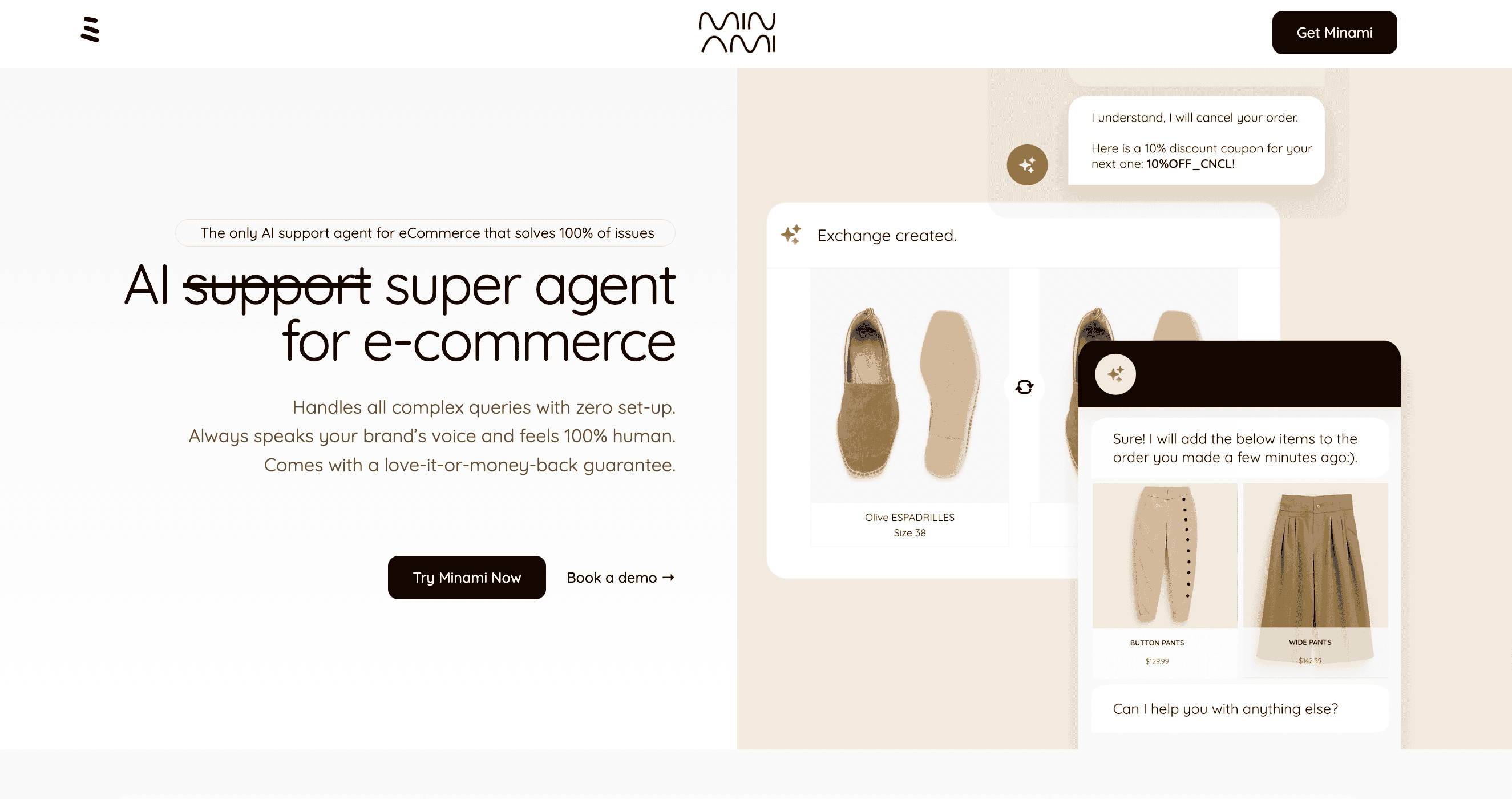
Minami AI is not just a generative AI chatbot — it’s the first autonomous AI agent built to manage the entire eCommerce lifecycle.
Minami AI connects to your store’s backend, understands what each customer needs, and handles the task automatically.
Say someone wants to return a product. Instead of sending them to a form, Minami takes care of everything: it processes the return, suggests other items, contacts the carrier, and keeps the customer updated.
It works the same way for exchanges, recommendations, delivery issues, or feedback—turning post-purchase support into something effortless.
Pros
-
Executes real actions like creating return labels or issuing exchanges
-
Fully autonomous: no scripts, flows, or manual tagging required
-
Unified experience across chat, email, SMS, and branded tracking pages
-
Learns from outcomes to optimize future decisions
-
Ideal for fashion, lifestyle, and DTC brands seeking retention and automation in one system
Cons
- Currently optimized for retail and DTC use cases, not B2B
Pricing
Contact the sales team for pricing
2. LivePerson Conversational Cloud
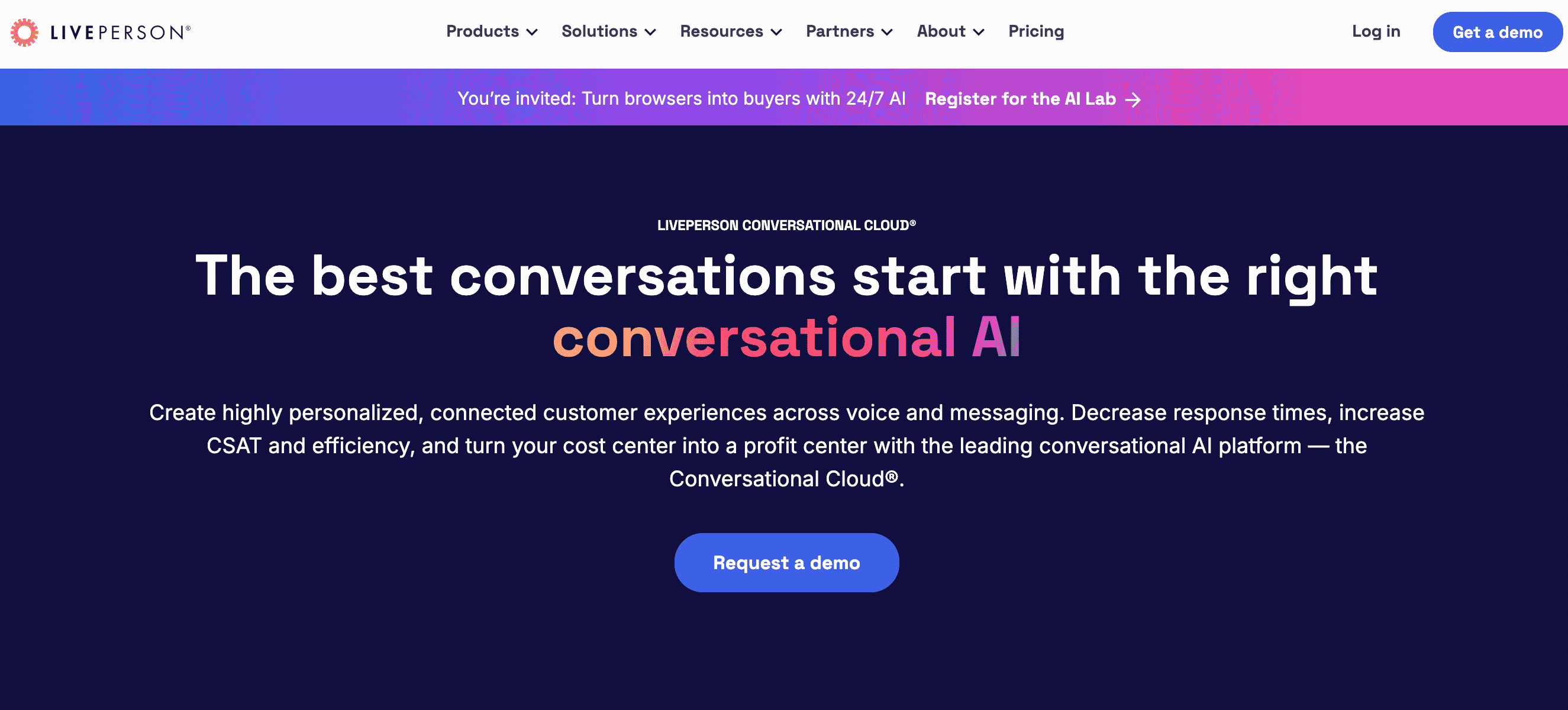
LivePerson’s Maven AI is an enterprise-grade conversational platform with strong SMS/WhatsApp coverage. Maven AI automates routine queries, measures sentiment, and routes high-value conversations to agents with workforce controls.
Pros
-
Native SMS/WhatsApp orchestration; strong carrier relationships
-
Sentiment, intent, and QA analytics are mature for ops leaders
-
Solid agent tools (routing, skills, concurrency)
-
Data unification across channels for lifetime-value views
-
Compliance and security documentation is battle-tested
Cons
-
Higher TCO and longer implementation cycles
-
Customization often needs professional services
Pricing
Contact the sales team for pricing
3. Zowie
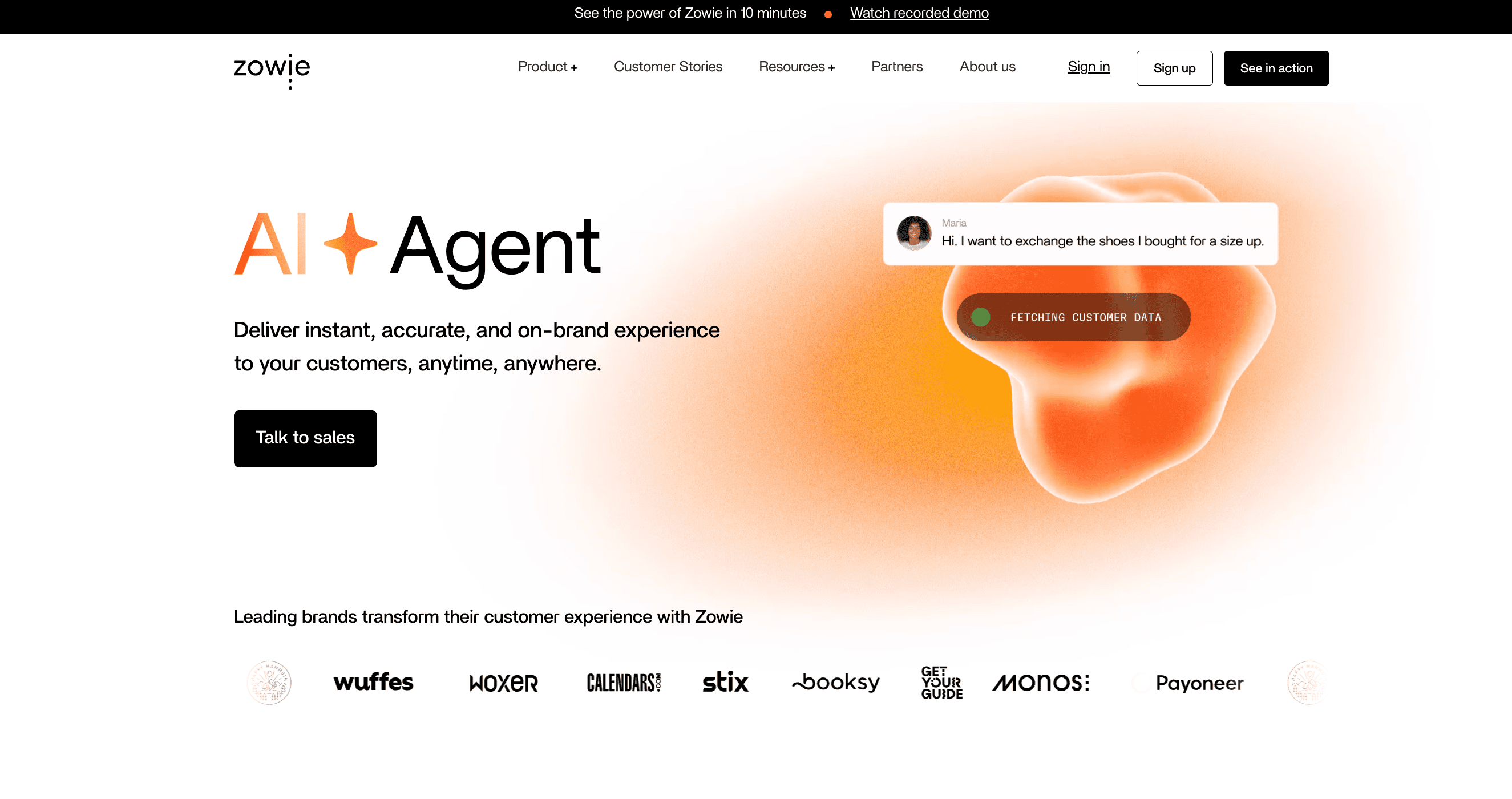
Zowie is an automation support bot for Shopify-centric brands. Handles refunds, subscriptions, and FAQs with quick time-to-value and marketing stack links.
Pros
-
Fast deployment; clear playbooks for DTC
-
Strong Shopify, Klaviyo, Stripe integrations
-
Measurable cost-reduction and deflection
-
Playbooks for peak seasons and promos
-
Clean dashboarding for CX metrics
Cons
-
Complex edge cases may require success services
-
Knowledge quality mirrors your help center quality
Pricing
Contact the sales team for pricing
4. Tidio Lyro AI
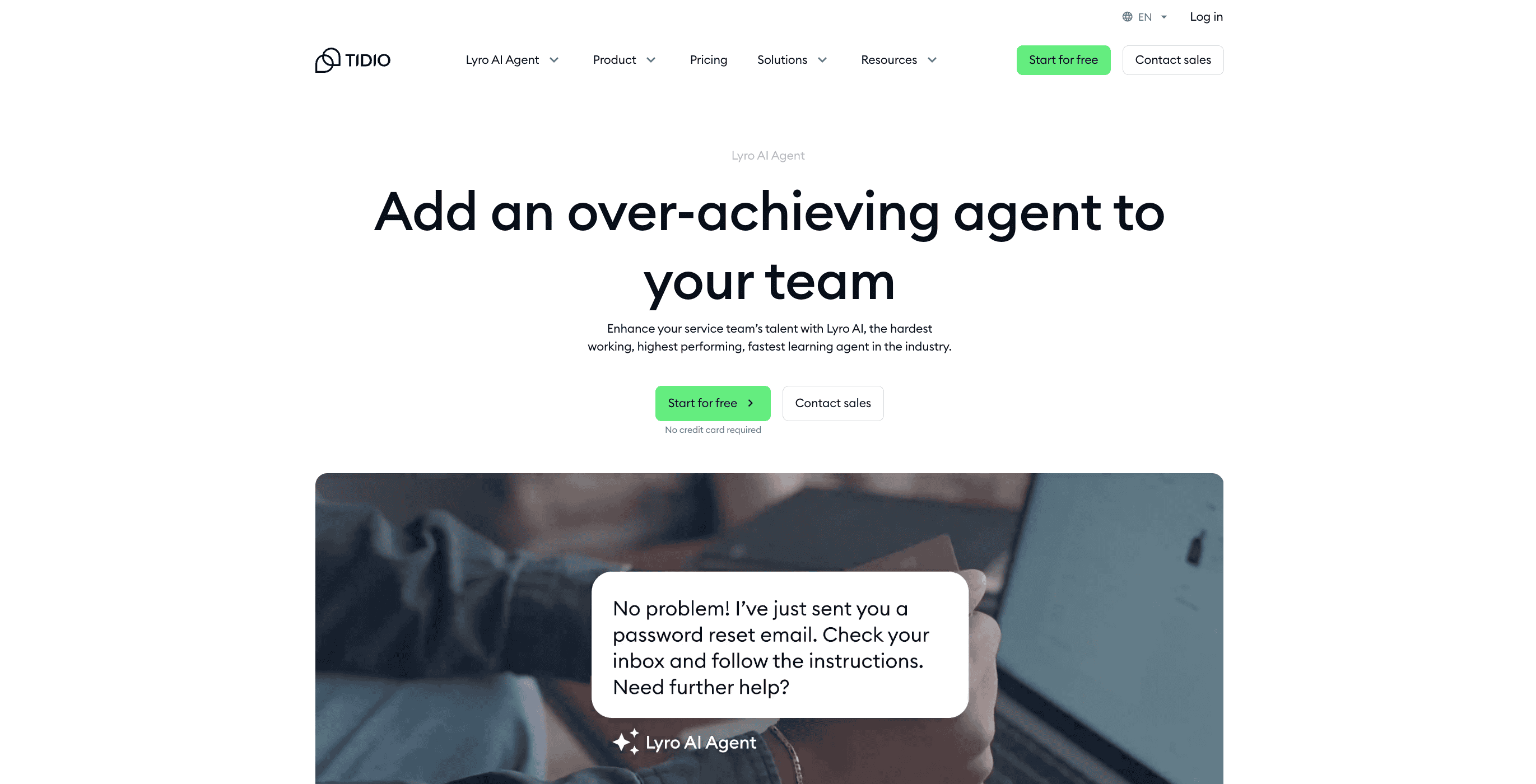
Tidio is an SMB-friendly generative chatbot for site chat, WhatsApp, Instagram. Uses cart and sentiment signals to personalize, with simple analytics.
Pros
-
Very low entry cost; easy install
-
Multichannel basics (web, IG, WhatsApp) for small teams
-
Template library for FAQs and promos
-
Decent multilingual coverage for global SMBs
-
Lightweight reporting that’s easy to read
Cons
-
Limited for complex returns or multi-brand logic
-
Shallow role-based access and approvals.
Pricing
You can upgrade your current plan to the AI Agent plan, starting at 32.50 dollars for 50 conversations per month and going up to 583 dollars for 1,000 conversations per month
5. Intercom Fin
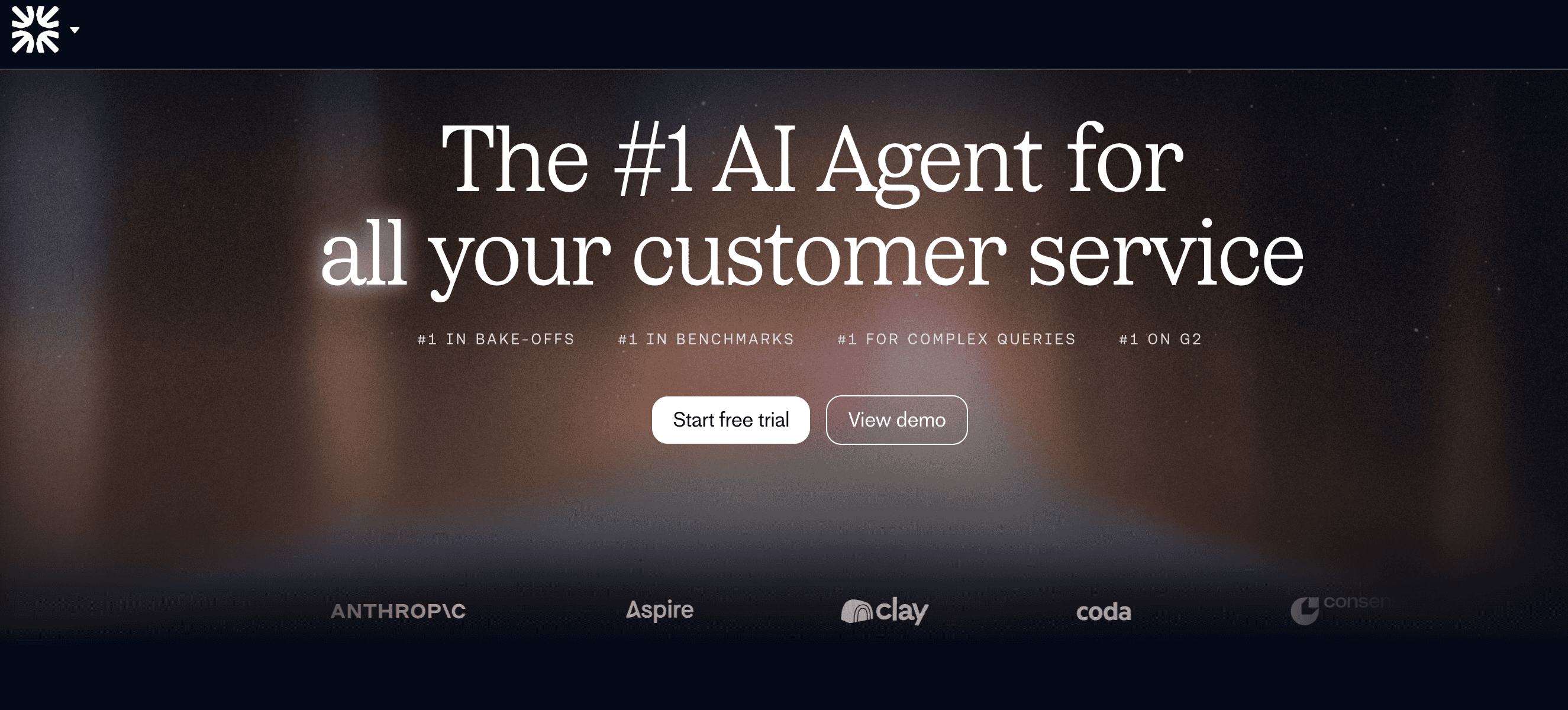
Intercom Fin is an answer bot that cites help docs/tickets, drafts agent replies, and triggers proactive chats inside the Intercom ecosystem.
Pros
-
High-precision answers from your docs with citations
-
Agent draft replies speed up handling time
-
Strong deflection without losing quality
-
Clear per-resolution economics
-
Tight fit with Intercom inbox, macros, SLAs
Cons
- Best results depend on well-structured knowledge content
Pricing
From 0.99 dollars per resolution
6. Ada
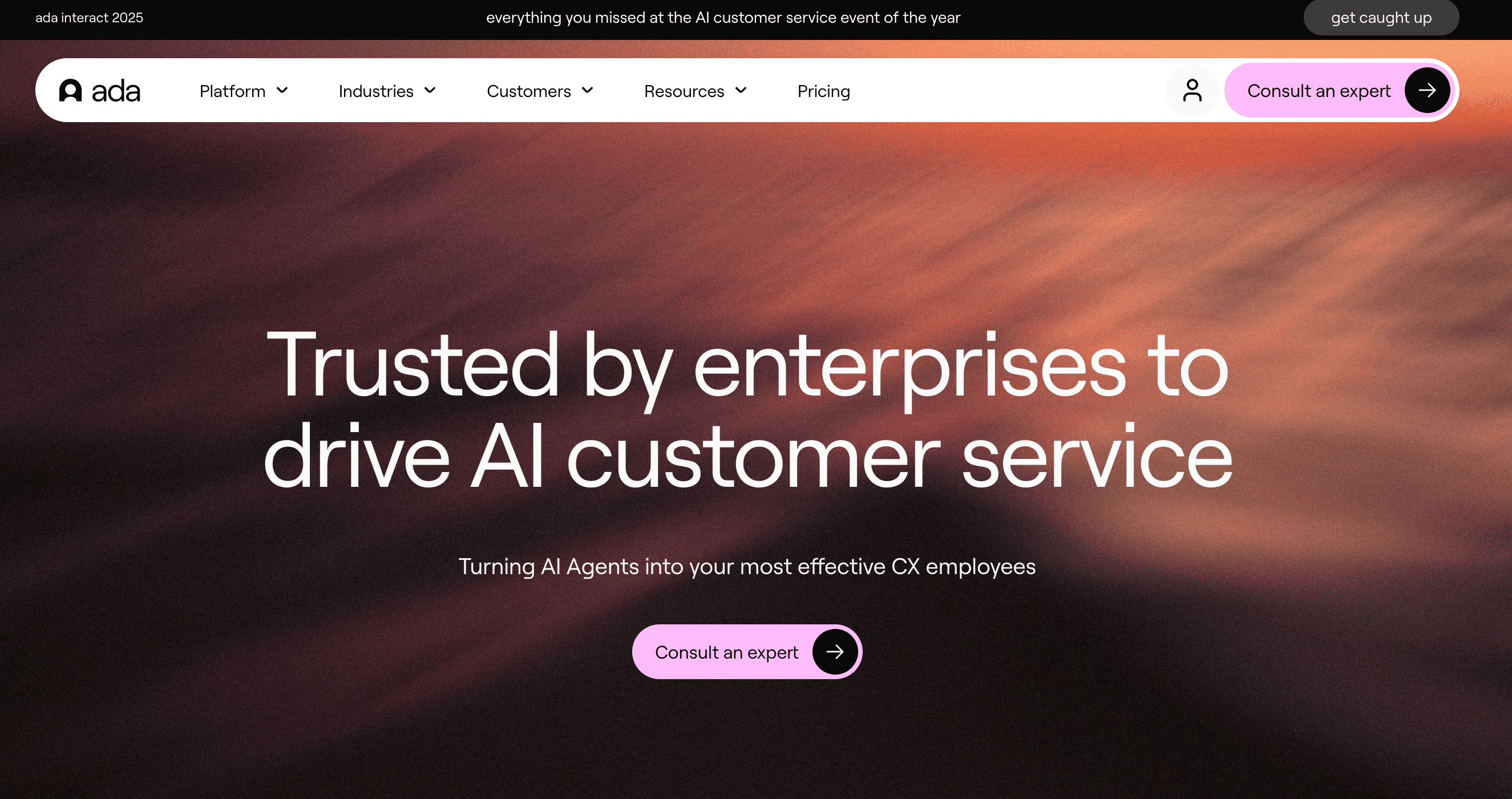
Ada is a personalization-heavy CX generative AI chatbot with multilingual support. Taps CRM and behavioral data to tailor tone and offers.
Pros
-
Strong personalization and brand-tone controls
-
Good global language coverage
-
Orchestration across web, messaging, and apps
-
Powerful testing/experimentation features
-
Enterprise governance (roles, approvals, audit)
Cons
-
Heavier setup
-
Benefits compound over time
Pricing
Contact the sales team for pricing
7. Zendesk AI
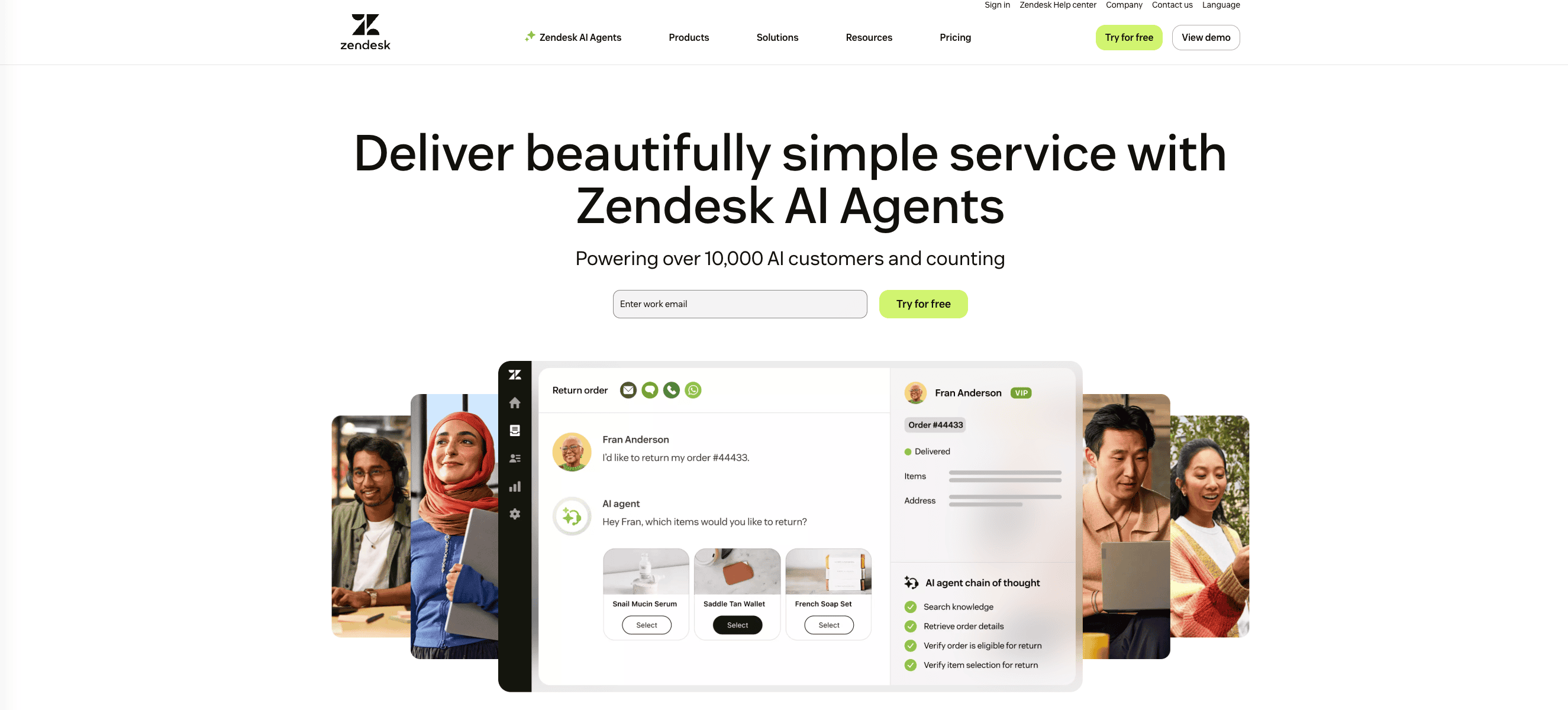
Zendesk’s AI helps agents with smart suggestions, ticket tagging, and intent detection. Its generative AI predicts next actions and tailors replies, lowering escalation rates.
Pros
-
Intent/tagging improves routing accuracy
-
Draft replies boost agent speed
-
Solid CSAT and escalation reduction at scale
-
Useful QA tools for managers
-
Enterprise security/compliance baked in
Cons
-
Requires Zendesk ecosystem
-
Per-agent licensing increases costs fast
Pricing
From $69 per agent per month + $1.50 per resolution
Enhancing the retail experience with generative AI: strategies and use cases
AI Buying guides on product pages
With generative AI, you can add a “Help me choose” button that acts like a digital shopping assistant.
It can explain differences between models, recommend the best fit or size, and even pull insights from your returns data to guide buyers toward smarter choices.
Dynamic product bundles
Static bundles are old news. With AI, you can create bundles that change depending on season, stock levels, and shopper behavior. If a customer buys running shoes in winter, the system can recommend thermal socks or waterproof sprays
Back-in-stock and pre-order coaching
Out-of-stock items don’t have to end the conversation. AI can instantly suggest similar products or invite customers to pre-order, complete with estimated delivery dates.
Turn returns into re-engagement moments
Most brands treat returns as a loss. Minami turns them into opportunities. When a customer starts a return, the AI suggests a size swap, a similar item, or store credit automatically.
It learns from previous purchases and fit data, so each suggestion feels personal.
Next Steps: Turn support into action
AI agents are evolving fast. What started as simple chatbots built to answer questions is now becoming the central nervous system of customer operations, providing truly generative responses.
Minami represents this next step for eCommerce.
It’s the first AI agent designed to manage the entire post-purchase lifecycle autonomously, processing returns, coordinating carriers, suggesting replacements, and closing the loop with the customer.
Frequently Asked Questions
Have more questions? Fill this form and our team will be in touch to answer them!
-
What is a generative AI chatbot?
- A generative AI chatbot uses artificial intelligence to create natural, human-like responses in real time. It understands context and intent, helping customers with tasks like returns, order tracking, or product questions without pre-set scripts.
-
How is generative AI implemented in retail functions?
- Generative AI is used in retail to automate customer support, personalize recommendations, and analyze feedback. It improves efficiency by handling repetitive tasks and creating smarter, more human interactions.
Get Started
Minami is available with zero setup
No integrations. No workflows. No dev time. Just power up Minami and let your AI agent cut refunds, manual labor, and losses